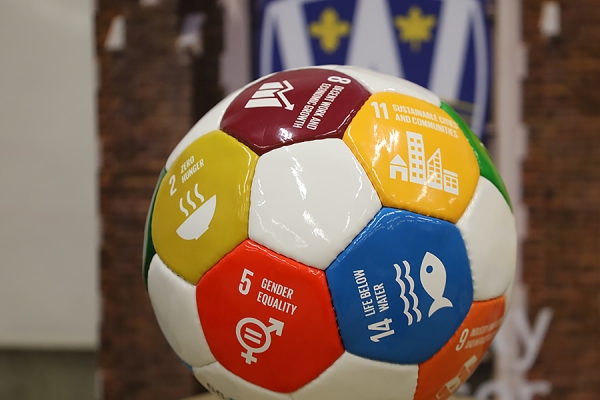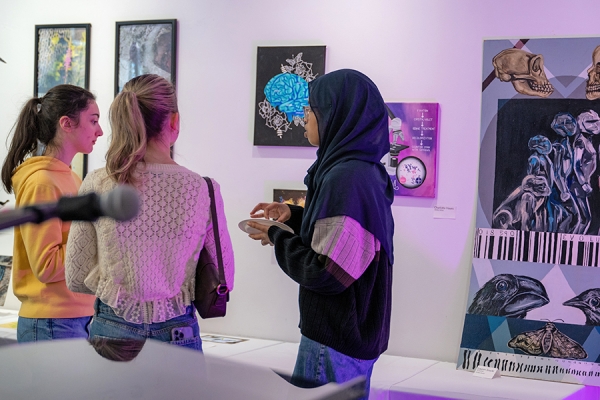Three faculties are coming together to help enhance students’ science communications skills through arts training. The Faculty of Science, the Faculty of Engineering, and the Faculty of Arts, Humanities and Social Science are collaborating on the Science Meets Art (SMArt) Communications initiative.
The project will offer masterclasses in the fields of creative ecologies, creative writing, drama, film, music, and visual arts where undergraduate and graduate science, engineering, and humanities students will learn communication skills and effective knowledge translation skills for disseminating science, technology, engineering, and mathematics research to diverse populations.
The Connect Grant is a one-year Social Sciences and Humanities Research Council (SSHRC) program.
“We’re really proud to see interdisciplinary research and how we can rethink the way in which we’re all utilizing research and creative methodologies,” says Jaclyn Meloche, project lead and instructor in the School of Creative Arts.
“The initiative will scaffold interdisciplinary scholarly exchanges between faculty and students in the humanities, social sciences, and sciences to develop new and innovative methods for teaching, disseminating, decolonizing, and deracializing scientific research.”
In addition to Dr. Meloche, the project team includes Dora Cavallo-Medved, interim dean of the Faculty of Science; Jennifer Willet, director of the Incubator Art Lab; Lisa Salfi-Novena, learning specialist in the Faculty of Engineering; and experiential learning specialist Michelle Bondy from the Faculty of Science, along with four student research assistants.
“We’re excited about the opportunities for our students across campus to engage within the SMArt communication masterclasses. By working together across disciplines, we are hoping our students can build their skillsets through collaboration and the cross-pollination of ideas,” says Dr. Cavallo-Medved.
The three-phase strategy includes six masterclasses, having students present their creative research to academic and non-academic audiences, and finally to have team members present their research findings to academic audiences via conference presentations and journal articles.
“SMArt Communications will have both immediate and long-lasting impacts on the learning trajectories of student participants, featured faculty, and audience members, for all will have learned new ways for effectively communicating and translating research and knowledge,” Meloche says.
“By putting new communication tools into the hands of future researchers, this initiative will improve how future research is conducted and disseminated and how diverse audiences are engaged.”
Salfi-Novena says students in STEM and other disciplines across the university have ideas to share and work to showcase: “These masterclasses aim to help them develop the critical skill of translating their complex knowledge into a format that audiences with varying backgrounds can more easily and joyfully access.”
English professor Susan Holbrook will lead a masterclass in creative writing from 1 to 4 p.m. Thursday, March 21. Students can register on the SMArt Communications Masterclasses website or directly on the creative writing masterclass webpage.
 A NetZero simulation on March 19 will challenge competitors to reduce carbon emissions and make a profit running a hotel.
A NetZero simulation on March 19 will challenge competitors to reduce carbon emissions and make a profit running a hotel.








